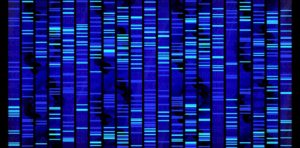
Recently Diagnosed or Relapsed? Stop Looking For a Miracle Cure, and Use Evidence-Based Therapies To Enhance Your Treatment and Prolong Your Remission
Multiple Myeloma an incurable disease, but I have spent the last 25 years in remission using a blend of conventional oncology and evidence-based nutrition, supplementation, and lifestyle therapies from peer-reviewed studies that your oncologist probably hasn't told you about.
Click the orange button to the right to learn more about what you can start doing today.
- You are here:
- Home »
- Blog »
- Multiple Myeloma »
- Multiple Myeloma Prognosis- Cytogenetic Prognostic Index
Multiple Myeloma Prognosis- Cytogenetic Prognostic Index

In all data sets, a higher PI (Cytogenetic Prognostic Index) was consistently associated with a poor survival outcome (for multiple myeloma patients)
I wrote a blog post about once about key questions to ask about your multiple myeloma when you are newly diagnosed. Staging of MM is essential to understanding your multiple myeloma prognosis.
Likewise, according to the article linked below, is your cytogenetic prognostic index. A MM patient’s CPI, however, is way beyond that staging that I was refering to when I wrote the “questions” blog post.
Beyond knowing your genetic abnormalities, I don’t see how your decision-making as a MM patient will be affected one way or another by knowing your CPI.
What I do think will positively affect your decision-making is if you work with (at least consult with) a MM specialist rather than a regular hemotologist-oncologist. I think that MM specialists will understand how your genetic abnormalties will effect various combinations of chemotherapy regimens as well as your MM prognosis.
Keep in mind that our genetic expression, how our genes express themselves, can change. And this change can affect your MM prognosis.
Have you been diagnosed with multiple myeloma? What stage? What cytogenetic abnormalities, if any? Are you working with a MM specialist?
Scroll down the page, post a question or comment and I will reply to you ASAP.
Thank you,
David Emerson
- MM Survivor
- MM Cancer Coach
- Director PeopleBeatingCancer
Recommended Reading:
- Most New Multiple Myeloma Drugs Don’t Improve Overall Survival or QOL
- Add’l Diseases @ Diagnosis Affect Multiple Myeloma OS-
- Bone Imaging Can Make or Break Multiple Myeloma
Development and Validation of a Cytogenetic Prognostic Index Predicting Survival in Multiple Myeloma
“The wide heterogeneity in multiple myeloma (MM) outcome is driven mainly by cytogenetic abnormalities. The current definition of high-risk profile is restrictive and oversimplified. To adapt MM treatment to risk, we need to better define a cytogenetic risk classification. To address this issue, we simultaneously examined the prognostic impact of
- del(17p); t(4;14);
- del(1p32);
- 1q21 gain; and
- trisomies 3, 5, and 21
in a cohort of newly diagnosed patients with MM…


